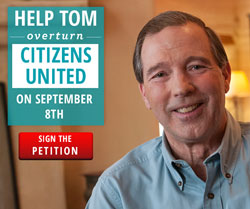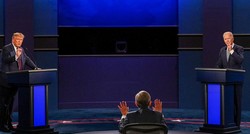On Monday, Sept. 8, the US Senate missed allowing a vote to propose a Constitutional amendment to create limits on campaign spending by corporations. The amendment would overturn the 2014 Supreme Court ruling in McCutcheon v. FEC which held that individuals could donate an unlimited amount of funds to campaigns, according to the Federal Election Committee’s website.
This amendment was unanimously rejected by Senate Republicans on Thursday, September 11. According to freepressonline.com, the amendment was sponsored by Democrat Tom Udall of New Mexico. The amendment would grant Congress and the states the power to regulate the amount of spending on campaigns from Super Political Action Committees (Super PACs).
Joseph Patten, Chair of the Political Science and Sociology Department said, “[Super PACs are] a new type of political action committee created after the “Citizens United” and “Speechnow” Supreme Courts cases in 2010 which allows PACs to now raise unlimited amounts of money from corporations and unions and spend unlimited amounts of money in political campaigns.”
He continued, “This is worrisome to many because wealthy individuals and organizations can now give unlimited amounts of “dark money” (unknown funding sources) and can have a disproportionate influence over individual races.”
Many public officials have fought for financial spending reform. According to freepressonline.com, Independent Senator Angus King said, “The fundamental principle of American democracy has always been that the people govern. But the massive amount of money that flows into our system today only undermines that by drowning out the voices of ordinary Americans.”
Gregory Bordelon, lecturer of political science, said, “There have been several vocal opponents of the decisions about campaign expenditures like Citizens United and more recent ones on campaign contribution cycles, such as the McCutcheon case from the Supreme Court’s last term, including recently retired Justice John Paul Stevens.”
Bordelon said, “Stevens was adamantly opposed to the decision reached by the Court in Citizens United, writing one of his longest dissents in his 35-year tenure on the Court, denouncing the unlimited influence of money in federal elections. He took that discontent to also include the decision in McCutcheon when he testified before the Senate about the constitutional necessity for a limit after these cases to somehow restrict the federal courts’ reliance on precedent.”
On the other hand, Republican Susan Collins said, “Meaningful reform of our campaign finance laws is achievable in a manner consistent with the First Amendment.”
Collins then talked about her view of how the issue should be handled. She claims that by strengthening the transparency of the legal system voters will be able to make better decisions when voting.
Trevor Good, a junior said, “There shouldn’t be a cap on the money people spend on candidates because it is a way to exercise free speech by using their own money to back the candidate of their choice.”
Unfortunately for the supporters of this amendment and campaign spending reform, the amendment could not pass through the Senate and it is unlikely any progress will be made anytime soon. Bordelon said, “There’s really only two ways to overrule a U.S. Supreme Court decision – one is by constitutional amendment (which is unlikely) or when the Court directly overrules a previous decision.”
Patten said, “There have been over 10,000 proposals to amend the constitution throughout history and only 33 have passed through the House and Senate. The current Congress is enacting a record low number of bills because of partisan gridlock and the senate filibuster, and a constitutional amendment requires a two-thirds vote in the house and senate before going to the states for ratification. It’s extremely unlikely this will happen.”
IMAGE TAKEN from Facebook.com


